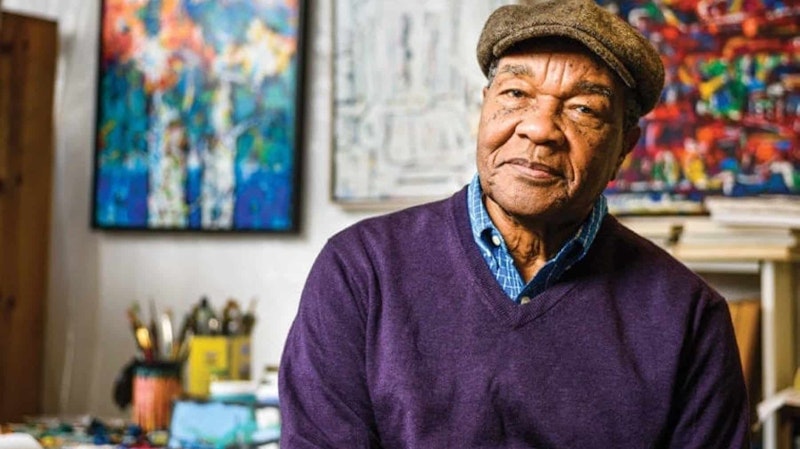Dr. David Driskell: If things are not adequately documented, the assumption is that they are not there.
Robert Irwin: I guess so. It’s a way of looking at the world, which is what I changed for them.
Driskell: And there was silence. You would miss it if you weren't very careful. You wouldn't have enough space to do that.
Irwin: You have a job and you’re holding on to it. Nobody was interested at all. Nobody.
Driskell: There were none. We painted them, of course.
•••
Irwin: That’s a very desirable idea and it’s an idea that everyone appreciates. This game was wide open. Why hasn’t it worked?
Driskell: I think it is mainly because much of the work is still in private hands, not in museum collections.
Irwin: Surface, sound, whether sound emanates or refracts or bounces around the room.
Driskell: I hear that there is a work that is going to be for sale at such and such a place.
Irwin: You probably should get the fuck out of there, if you’re gonna be an artist.
•••
Driskell: Now, that didn't mean that everybody stuck to those laws, but we were cognizant of the importance of trying to live up to that code.
Irwin: They hadn’t quite identified that what we had as a symposium was not about ideas but about how things feel.
Driskell: Yes. That wouldn't happen now, out of collegial respect, hopefully.
Irwin: The trip to the universe. I was really impressed.
Driskell: Goldwyn, like Metro-Goldwyn-Mayer.

